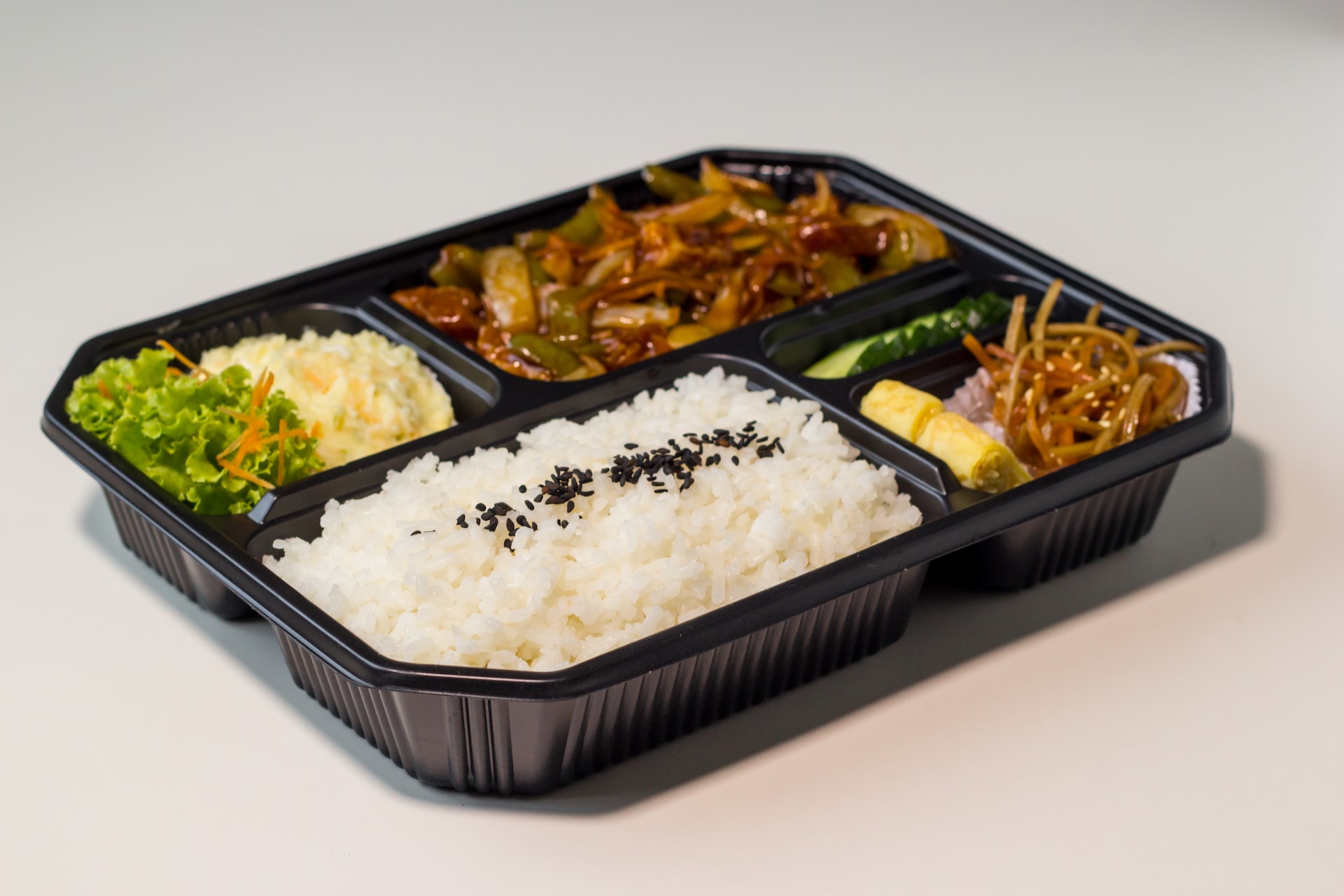
Meal kit companies had sizzling sales in the early months of COVID-19, as consumers turned to subscription services to fulfill basic needs. But in recent years, the industry has seen challenges related to seasonal demand, rising inflation, and high operational and marketing costs. In fact, some meal kit companies like Blue Apron and HelloFresh announced layoffs in recent months, and Blue Apron (NYSE: APRN) received a delisting notice from the NYSE in December 2022. Using consumer transaction data, Bloomberg Second Measure analyzed a few of the major meal kit companies—including Blue Apron, HelloFresh, Home Chef, Marley Spoon, and Sunbasket—to see how market share and customer retention compared within the industry as of the end of 2022.
Appetite for HelloFresh has grown compared to other meal kit companies
HelloFresh has been eating up meal kit market share over the past four years, as the company’s sales growth outpaced most of its competitors. HelloFresh’s increasing market share may also be attributed to its acquisitions of smaller meal kit companies, such as Green Chef in 2018 and Factor 75 in 2020, and the launch of EveryPlate in 2018 as a lower cost alternative. In 2022, HelloFresh and these subsidiaries accounted for 78 percent of meal kit sales among the companies in our analysis.
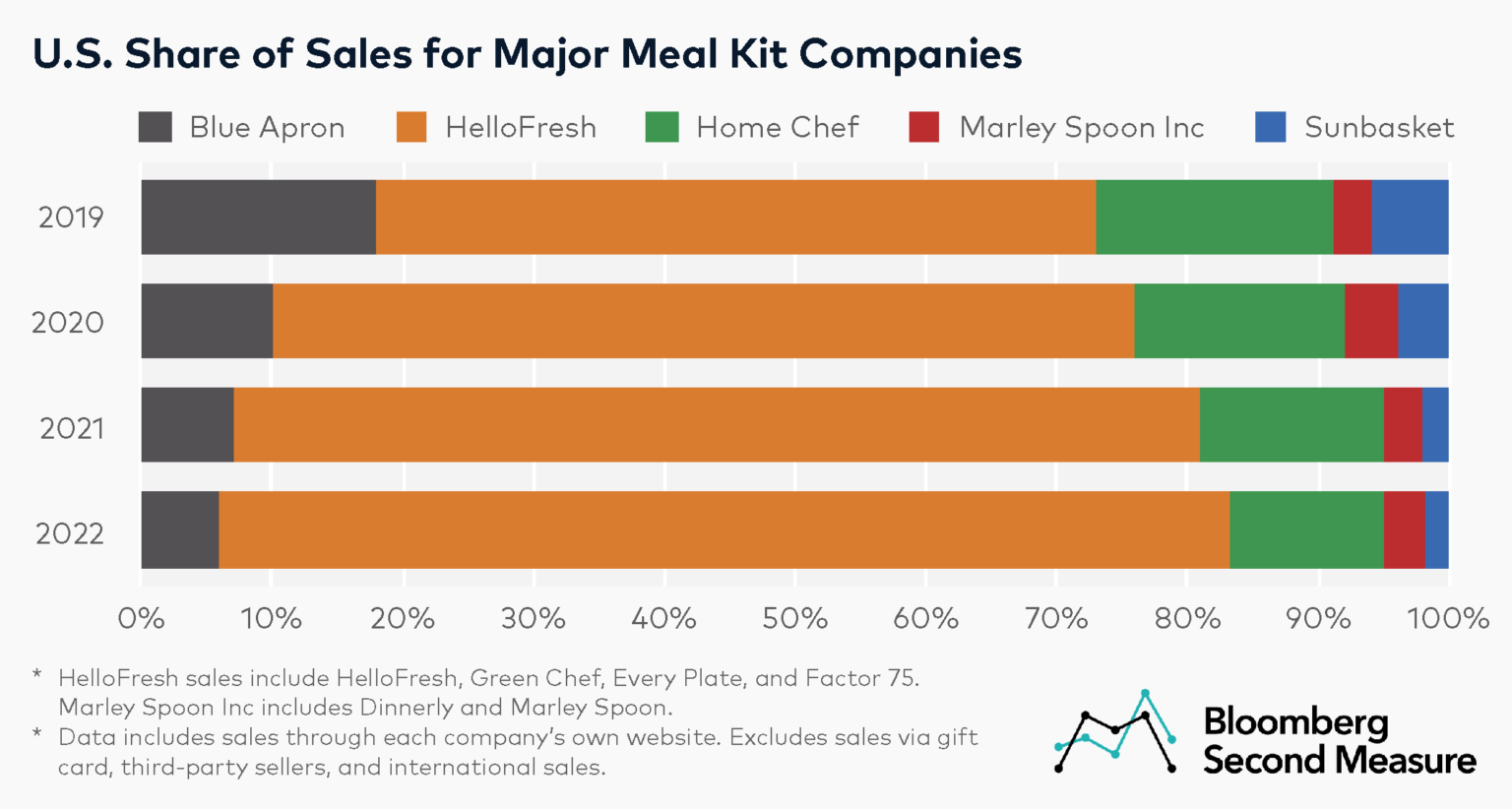
Home Chef, which is owned by grocery giant Kroger (NYSE: KR), earned 12 percent of meal kit market share in 2022, followed by Blue Apron with 6 percent. Market share for Marley Spoon Inc, which consists of Marley Spoon and Dinnerly, accounted for 3 percent of meal kit market share, while Sunbasket earned 2 percent. Notably, Bloomberg Second Measure data only includes U.S. sales through each company’s own website. It also excludes sales made via gift card or third-party sellers.
All meal kit companies in our analysis offer weekly deliveries of fresh ingredients and recipes chosen by the customer. Consumers have the option to pause and resume shipments as they wish, and they are only charged per delivery. Some meal kit companies have positioned themselves as cost-effective grocery alternatives in the wake of high inflation, while others have raised prices to combat higher production costs.
Many meal kit customers still aren’t coming back for seconds
Customer retention continues to be a challenge for meal kit companies. Consumers may be enticed to sign up for a meal kit during a promotional period—or as part of a New Year’s Resolution to cook at home more or eat healthier—but most do not stay long-term. Among cohorts who made their initial purchase in January 2022, 69 percent of customers at Blue Apron and 58 percent at Home Chef and Marley Spoon Inc made another purchase the following month, in addition to 57 percent at HelloFresh. After 11 months, customer retention among the January 2022 cohort was 15 percent at Blue Apron, 11 percent at Home Chef, 9 percent at HelloFresh SE, and 5 percent at Marley Spoon Inc and Sunbasket.
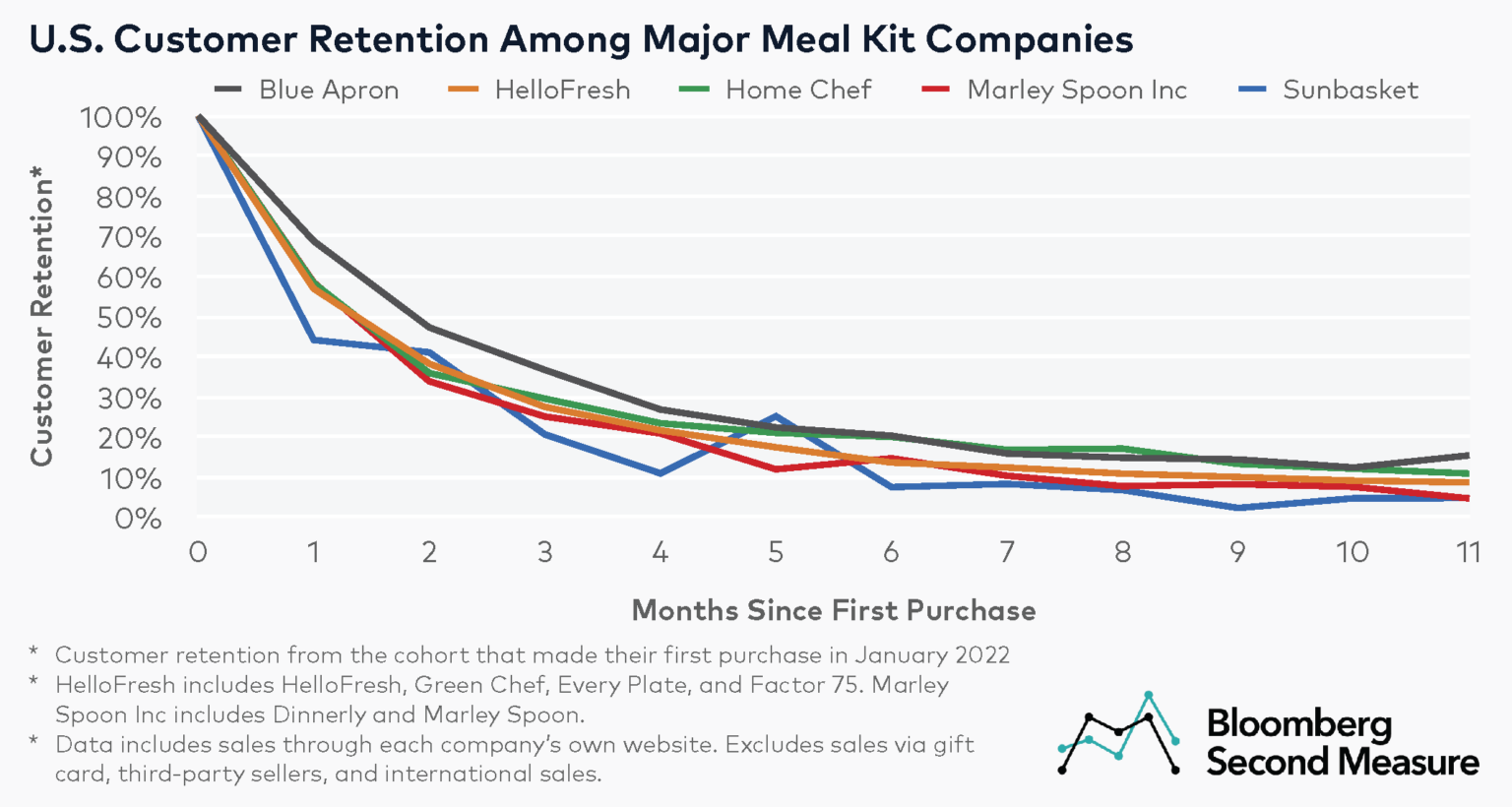
Some meal kit companies have also launched non-subscription options. For example, although Blue Apron generally has the highest customer retention among these companies, its retention rates may be affected by its option to purchase meal kits without a subscription. In addition, most of the companies in the analysis offer gift cards. These transactions are observed at the time of purchase from each merchant, but purchases made with gift cards are not captured in Bloomberg Second Measure data.
Meal kits are experimenting with new products to find the recipe for success
Some of these meal kit companies have experimented with other offerings and partnerships. For example, Blue Apron launched a wine club in 2015. HelloFresh also offered a wine club starting in 2017, but has since discontinued it. Several of these meal kit companies, including Blue Apron and Sunbasket, have also launched their own “heat-and-eat” meals that require little to no prep. Interestingly, grocery delivery services like Instacart and GoPuff have also branched out to ready-to-eat meals as an alternative to third-party food delivery companies like DoorDash and Uber Eats.
In early 2022, Blue Apron partnered with Panasonic to sell the electronic company’s new four-in-one countertop oven, along with specific recipes using the appliance. Other strategies that Blue Apron has launched include partnering with the meditation app Calm to offer a free 3-month subscription with the purchase of a third Blue Apron box, as well as partnerships with Disney to offer menu items tied to new movie releases. In 2022, Blue Apron began selling its meal kits and ready-to-go meals through Walmart.com and Amazon (though these sales are not reflected in Bloomberg Second Measure’s data). As these promotions and partnerships suggest, meal kit companies are continuing to search for the right mix of ingredients that will draw—and ultimately keep—customers.
To learn more about the data behind this article and what Second Measure has to offer, visit https://secondmeasure.com/.







Sign up to receive our stories in your inbox.
Data is changing the speed of business. Investors, Corporations, and Governments are buying new, differentiated data to gain visibility make better decisions. Don't fall behind. Let us help.
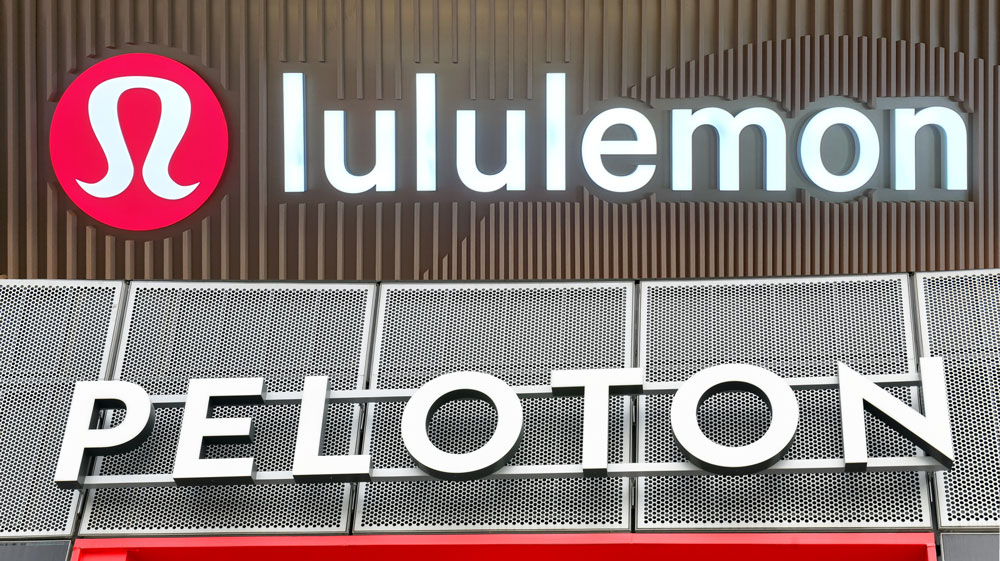
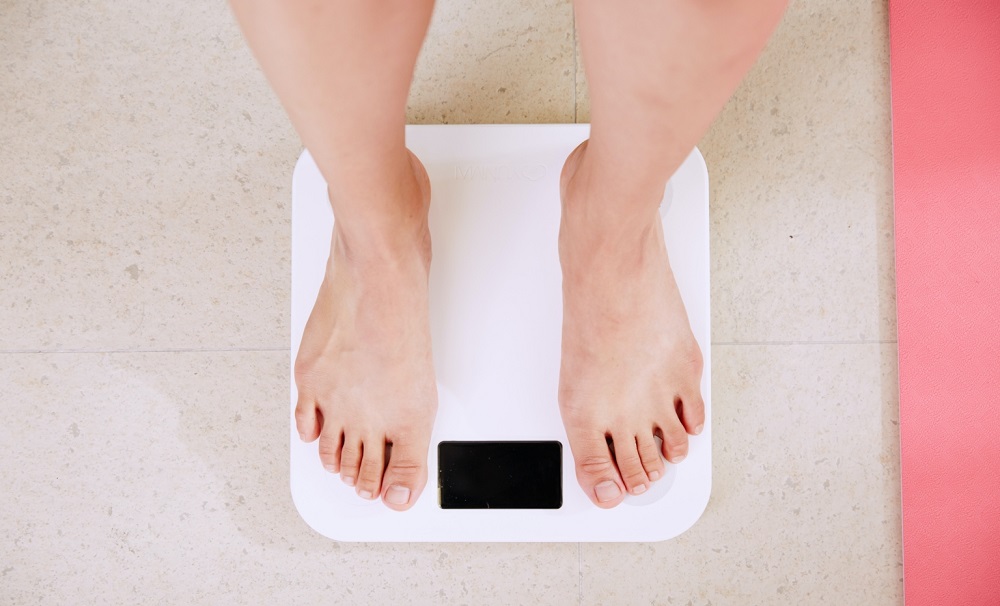

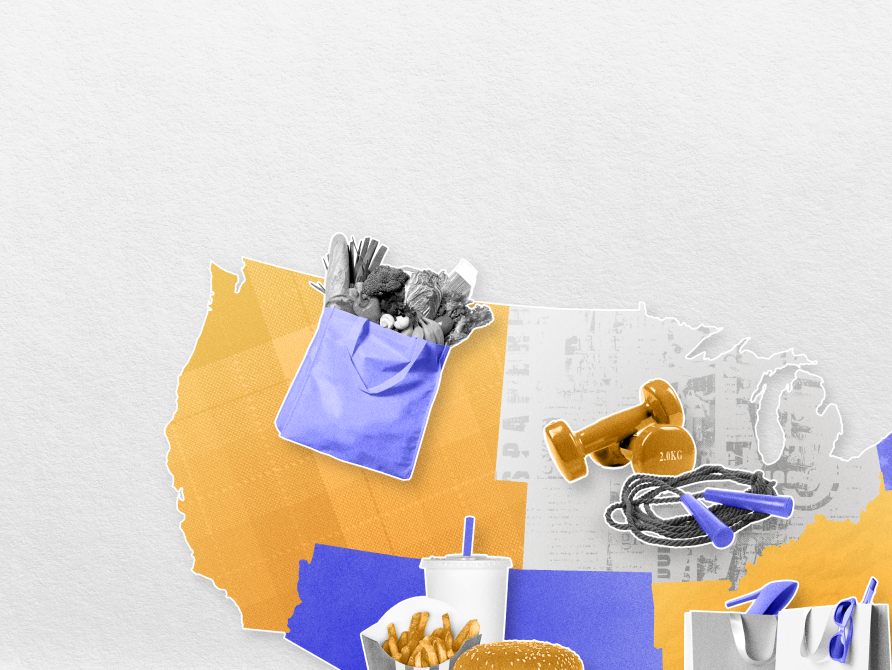
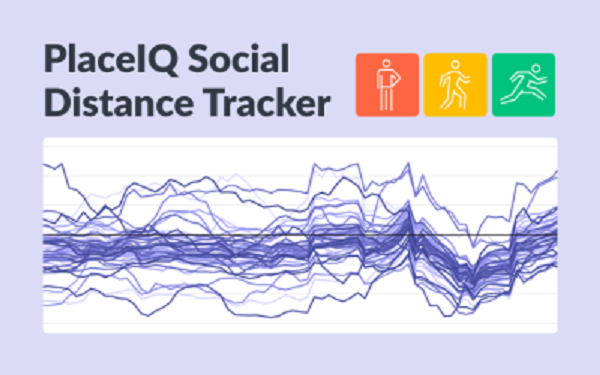
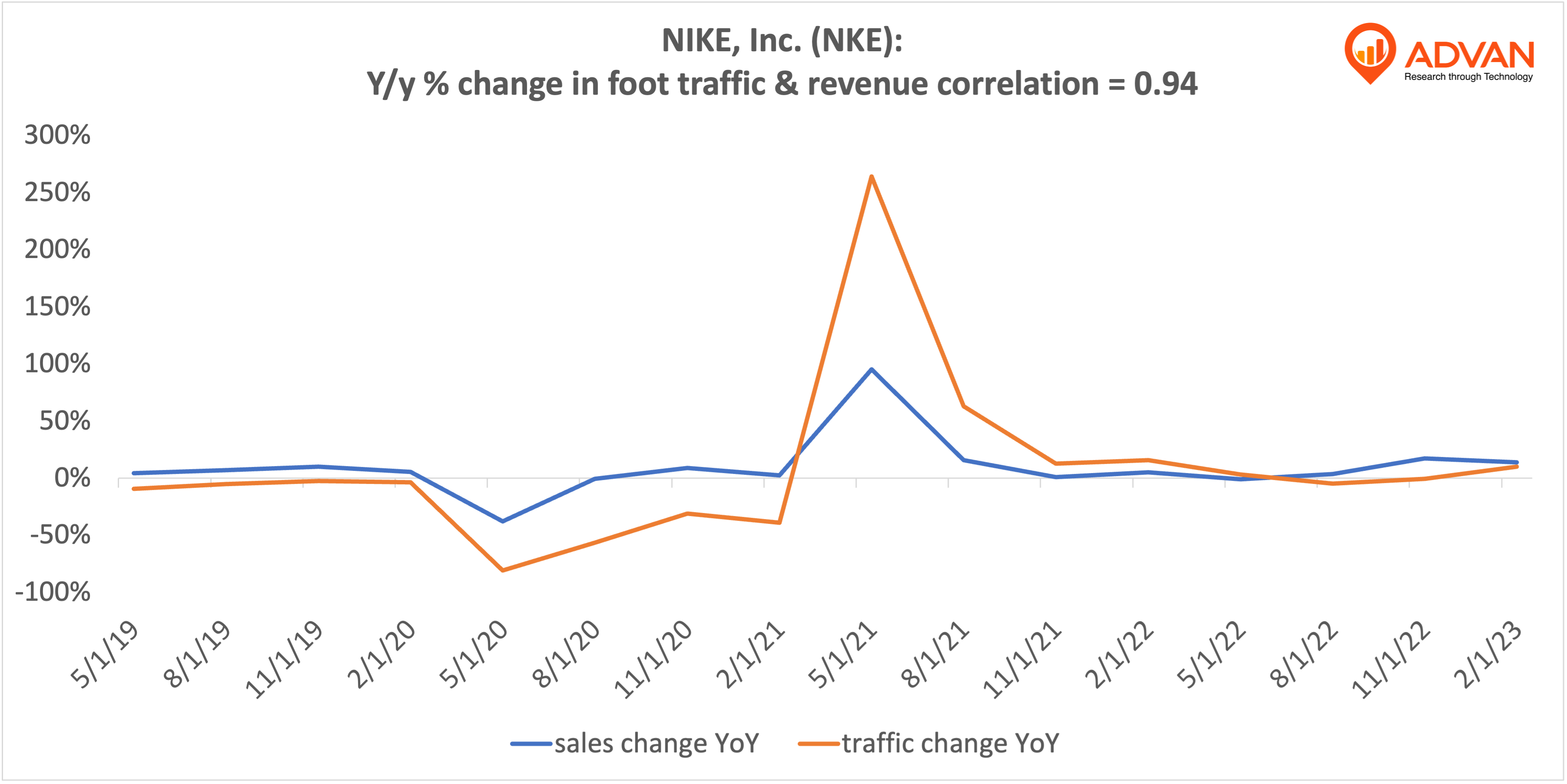







Sign up to receive our stories in your inbox.
Data is changing the speed of business. Investors, Corporations, and Governments are buying new, differentiated data to gain visibility make better decisions. Don't fall behind. Let us help.





